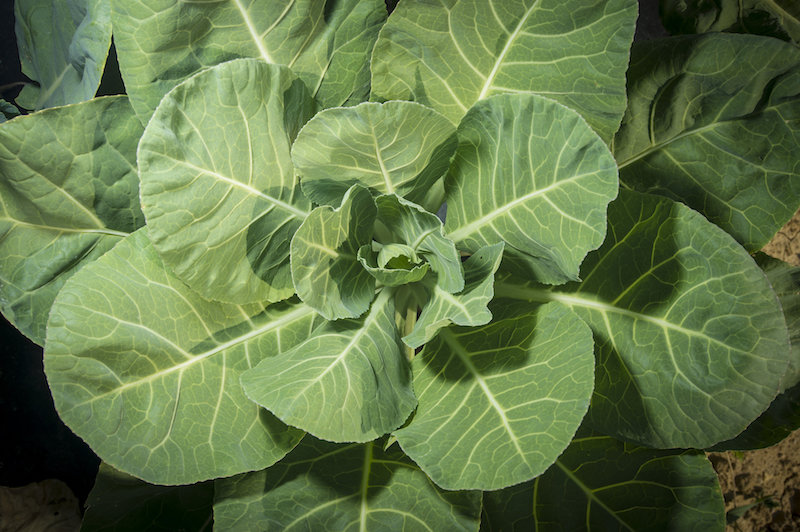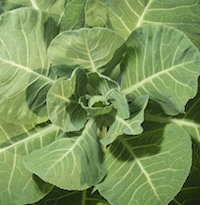Just the other day I received an email from a Forsyth County resident about a cucumber plant that was in decline. He wanted to know what to do to get it back to “normal.” My response was, “There is nothing to do. It’s the end of the season for that cucumber plant, so pull it up and start thinking about a fall garden.”
As summer vegetables stop producing, it’s time to start planning and preparing fall gardens. One advantage of gardening in the fall is cooler temperatures that make gardening more pleasant.
Another advantage is that most fall vegetables are leafy, green plants that don’t require pollinators to produce the parts we eat. Gardeners can use low-tunnel hoop houses to protect their plants from pests and to capture a few more growing days out of the fall season.
In addition to excluding pests, covering hoop houses in shade cloth blocks out some of the heat from the sun, allowing us to plant cool season vegetables earlier. Later in the season, the shade cloth traps heat from the earth inside the hoop house and can raise the temperature around the plants by a few degrees. Some cool-season vegetables can overwinter in the garden for an early spring harvest.
Because they take longer to mature, some fall vegetables are best purchased as transplants. These include broccoli, Brussels sprouts, cabbage and cauliflower. Vegetables that can be planted as seeds include beets, bunching onions, carrots, collards, kale, lettuce, mustard, radishes, spinach, Swiss chard and turnips.
University of Georgia Cooperative Extension recommends this list of cultivars of cool season vegetables that do well in Georgia:
Broccoli – ‘Marathon’, ‘Packman’, ‘Patriot’, ‘Premium Crop’, ‘Bravo’, ‘Decathlon’
Cabbage – ‘Blue Dynasty’, ‘Bravo’, ‘Early Round Dutch’, ‘Rio Verde’, ‘Green Jewel’
Carrot – ‘Chantenay’, ‘Scarlet Nantes’, ‘Sweetbites’, ‘Sweet Delight’
Cauliflower – ‘Absolute’, ‘Early Snowball’, ‘Graffiti’, ‘White Magic’, ‘Symphony’
Collard greens – ‘Blue Max’, ‘Georgia Southern’, ‘Hevi-Crop’
Kale – ‘Vates’, ‘Dwarf Siberian’, ‘Blue Armor’, ‘Blue Knight’
Lettuce – ‘Butterhead’, ‘Romaine’, ‘Buttercrunch’
Mustard greens – ‘Florida Broadleaf’, ‘Southern Giant Curled’, ‘Red Giant’, ‘Savannah’
Onion, green – ‘White Portugal’
Onion, dry bulb – ‘Burgundy’, ‘Excel’, ‘Grano’, ‘Red Creole’, ‘Savannah Sweet’
Radish – ‘Cherry Bell’, ‘Scarlet Globe’, ‘Champion’
Spinach – ‘Melody’, ‘Winter Bloomsdale’
For more information about planning your vegetable garden at any time of year, see UGA Extension Circular 943, “Vegetable Garden Calendar,” at extension.uga.edu/publications.








